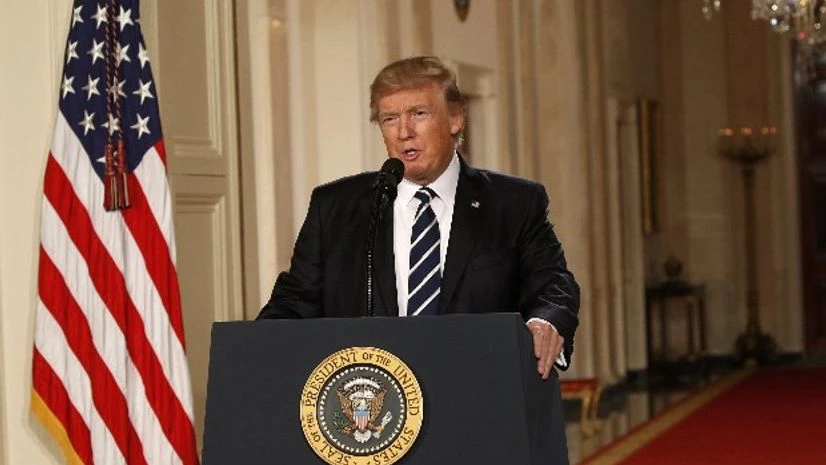President Donald Trump's decision to launch missiles into Syria risked raising tensions with Iran, a key backer of Syrian President Bashar Assad in a conflict with dangerously blurry battle lines.
Tehran has condemned the missile attack on the Shayrat airfield, and officials have raised the possibility of consequences.
The friction underscores a challenge for Washington, which has long supported opposition groups fighting Assad and his Iranian allies without joining the fray itself.
More From This Section
Retaliatory measures by Iran could have ripple effects in the region, targeting everything from US Navy warships to US- allied Arab governments.
Iran could also use Hezbollah and other Shiite militias to hit American forces fighting the Islamic State group in Iraq and Syria, or attack the many US allies in the region.
The US cruise missile strikes, launched as punishment for a Syrian chemical attack that killed more than 80 people, could also prompt Iran to boost Revolutionary Guard forces fighting alongside Assad's government.
Before Thursday's attack, the US took the standard measures to prevent an inadvertent strike on Russia's military, another Assad ally.
No such "deconfliction" agreement exists with Iran's military and paramilitary, meaning there was no way to prevent its personnel from being in the wrong place at the wrong time during the missile attack.
There is no sign Tehran has retaliated against the US American forces have not had any "unsafe" or "unprofessional interactions with Iranian maritime forces" since the strike, said Cmdr. Bill Urban, spokesman for the US Navy's Bahrain- based 5th Fleet.
On Sunday, Iran's supreme leader, Ayatollah Ali Khamenei, said the US strike on the base was a "strategic mistake and offense."
And one prominent Iranian lawmaker threatened consequences. "Russia and Iran won't be quiet against such acts which violate interests of the region," said Allaeddin Boroujerdi, the head of the parliamentary committee on national security and foreign policy.
The US has taken great pains in recent years to work around Iranian fighters in Iraq and Syria as it battles the Islamic State group.
That has partly reflected an effort to safeguard a landmark nuclear agreement, and to avoid another American conflagration in the Middle East.
Naval forces from the elite Guard keep close tabs on American ship movements in the Persian Gulf and the Strait of Hormuz, where a fifth of the world's oil trade navigates.
In February, several armed Revolutionary Guard speedboats approached and filmed a US aircraft carrier entering the Gulf.
Hezbollah has long threatened US interests in the region, including Israel's security.
But Giorgio Cafiero, CEO of Washington-based consultancy Gulf State Analytics, expected a wait-and-see approach from Iran.
"My gut tells me if this is a one-off operation," Cafiero said of the US cruise missiles, "we will likely see a relatively calm and measured response from Iran and its Shiite proxies.

)
